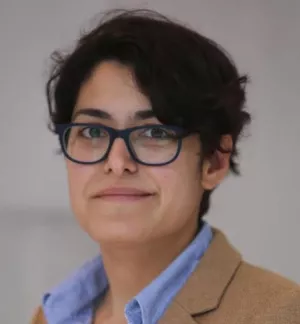With the 2014 Nuclear Security Summit (NSS) now over, policymakers are thinking about next steps to address nuclear security. The NSS process has progressed since its first installment in 2010; yet, the Middle East, a key region where nuclear security is of tremendous importance, remains underrepresented.
Notably absent at the 2014 Summit were Iran, Iraq, and Libya, key states that have either embarked on, or plan to develop a nuclear energy program in what remains a highly volatile region of the world. States in the region have called for the strengthening of nuclear security, as nuclear technology and materials proliferate throughout the region in the context of nuclear energy programs. A number of measures have been taken in the region to minimize the threat of non-state actors acquiring nuclear weapons or materials, both within the framework of the NSS process and outside it. Important states in the region still have not signed or ratified key international instruments governing nuclear security, including the Convention on the Physical Protection of Nuclear Material (1979), its 2005 Amendment, and the International Convention for the Suppression of Acts of Nuclear Terrorism (2005).
This short piece provides a number of recommendations for countries in the region to strengthen nuclear security through a regional process, independent of a global one. In addition to enhancing nuclear security and ensuring that nuclear materials and weapons do not fall into the hands of terrorists, our approach would also help establish confidence and security-building measures in a region that lacks both security and confidence.
Implementation of Nuclear Security Measures in the Middle East
Although Israel is the only country in the region with large quantities of nuclear material, Iran has a few kilograms of highly enriched uranium (HEU) and Syria has approximately 1 kg. Yet, the threat of nuclear terrorism is still present and real. According to a U.S. Government Accountability Office (GAO) estimate, there were at least 6,545 sealed sources of radioactivity in use in the region as of 2003, mostly used in medical-diagnostic, academic research, and commercial sources. As International Atomic Energy Agency Director General Yukiya Amano noted, most cases of attempted illicit trafficking do not involve nuclear materials, but highly radioactive materials like cesium-137 and cobalt-60 that are stored in hospitals and factories, which are more vulnerable to theft. What is more, in 2012, a container of radioactive materials was reported stolen from the Dabaa nuclear power plant construction site in Egypt. In a separate incident the same year, orphan radioactive sources were found by inspectors at Lebanese seaports. Given the increasing demand for nuclear energy in the Middle East, incidents and/or attempts at radioactive material theft is likely to increase in the next ten years without national or regional preparedness to deal with it.
| Meeting of the 22-member Arab League (Bahrain Ministry of Foreign Affairs photo). |
Regional parties should discuss measures to secure radiological materials that could be used in building a radiological dispersal device (RDD) or “dirty bomb.” The successful detonation of a RDD would lead to panic, casualties, and could contaminate the environment for decades. Moreover, RDDs are much easier to assemble than improvised nuclear devices.
The threat of nuclear terrorism is viewed with a high degree of skepticism in the Middle East. Most people living in the Middle East are focused on the civil and asymmetric conflicts that are devastating populations in the region, with many viewing nuclear terrorism as a far-fetched idea only important to a few analysts in the West who are disconnected from the more immediate and daily threats throughout the Middle East. Many believe it to be yet another pretext where the United States is imposing its position, pursuing its interest, and limiting countries’ right for advanced technology.
Similarly, U.N. Security Council Resolution 1540 (2004), aimed at preventing proliferation of weapons of mass destruction to non-state actors, is viewed with skepticism in the Middle East. Some in the region perceive the U.N. Security Council as an unjust club that pushes the interests of some nations at the expense of others; that national nuclear arsenals are a more viable threat than nuclear terrorism, thus seeing any discussion around nuclear terrorism as a distraction from nuclear disarmament. Most states in the region would prefer to tie the issues of regional disarmament and nuclear security.
The Middle East, however, is particularly vulnerable to nuclear terrorism, due principally to the number of terrorist organizations and fragile states coexisting in the region. Taking appropriate steps for national implementation and regional cooperation to enhance U.N. Security Council Resolution 1540 is therefore extremely important. The establishment of a regional working group on nuclear security would be a crucial such measure. This, in turn, could be used to pave the way for the creation of a regional center for nuclear security, to build capacity, develop indigenous programs, and promote regional cooperation. It would enable states to work collectively to ensure the security of nuclear materials and facilities, allow states to share expertise, capitalize on existing capabilities, and lead to and strengthen a regional framework for nuclear security.
Another potential area of cooperation for countries in the Middle East lies in regional cooperation on preventing illicit nuclear trafficking. Because of weak export controls and enforcement mechanisms, several countries in the region have been used by illicit suppliers and shippers as transport routes and transshipment points of nuclear material and equipment. In order to address this issue, Jordan coordinated the gift basket for the 2012 Seoul Summit to create a counter-nuclear smuggling team, and fourteen countries pledged to make resources and lessons available for capacity building projects by 2016 at the 2014 Hague Summit.
Middle Eastern states could also better implement and enforce export control measures by joining forces through multilateral frameworks, such as the Proliferation Security Initiative (PSI). Launched in 2003, PSI is aimed at strengthening nonproliferation law, facilitating joint training activities, and conducting joint interdictions as an international counter-proliferation effort. Since being initiated by the United States, over one hundred countries have endorsed the PSI Statement of Interdiction Principles. These include a number of countries from the Middle East: Bahrain, Iraq, Israel, Jordan, Libya, Saudi Arabia, Turkey, and the United Arab Emirates. The PSI contributed to the successful interdiction of the German ship, BBC China, carrying uranium enrichment centrifuge parts from Malaysia to Yemen in 2003. Although coalitions of the willing such as PSI cannot directly prevent trafficking, they deter illicit shipment of sensitive nuclear items and complement global mechanisms to fight proliferation.
As the current NSS process is expected to halt after 2016, the Middle East’s nuclear security challenges can be addressed on a regional basis which includes all key countries, regardless of participation in the NSS process. As a first step toward a long-term regional process, Middle Eastern countries could contribute to a joint statement inspired by the NSS “house gifts” (i.e. measures countries take or plan to take to strengthen nuclear security), by proposing concrete national and regional actions to strengthen nuclear security. Indeed, the lack of large quantities of HEU and plutonium in the region is an opportunity for regional cooperation, as the issue is politically less sensitive and the measures required to secure the material in risk are relatively simple. Moreover, Middle Eastern countries have a track record of cooperation in cross-border counter-terrorism activities. These efforts could be extended to nuclear terrorism, regardless of diverging interests, because states would have a lot to gain from increased nuclear security.
Collaboration in this area would also function as a confidence building measure and as a first step toward regional security dialogue by opening new areas for security cooperation. Building regional capacity to counter nuclear terrorism by enhancing national law enforcement mechanisms, infrastructure to detect threats, and attribution by nuclear forensics would be in all regional parties’ interest to enhance their national security.
Goren, Nilsu and Ariane Tabatabai. “Beyond the Summits: The Way Forward for Nuclear Security in the Middle East.” April 11, 2014


